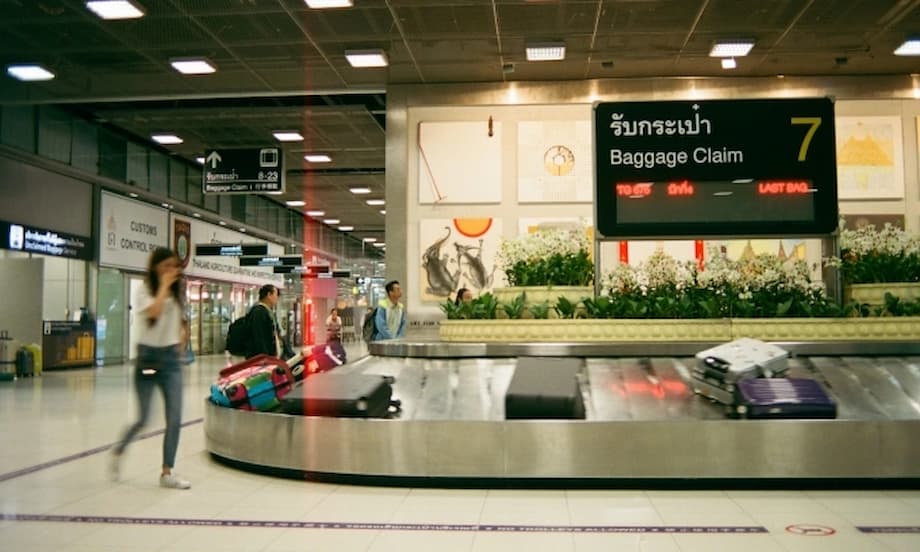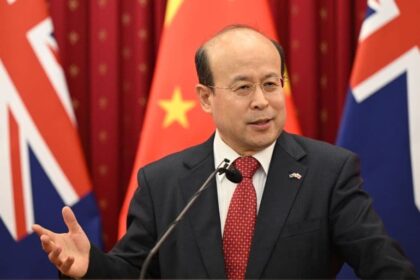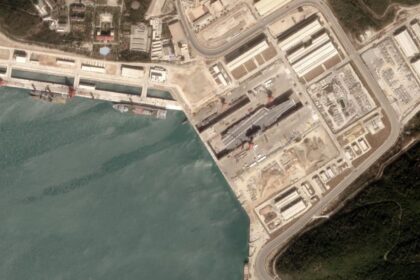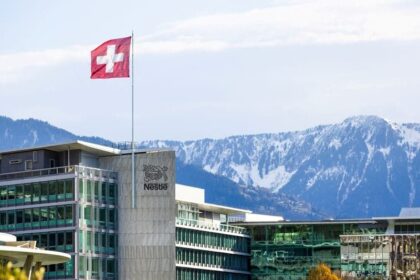Thai and Vietnamese Airports Take Different Paths on Excess Luggage: Service Culture Under the Spotlight
Travelers experience contrasting approaches to rules and customer service at airports in Thailand and Vietnam, highlighting the need for balance as Vietnam modernizes its aviation sector.
At airports across Southeast Asia, the way staff handle excess luggage can reveal much about a country’s broader service culture. In recent years, travelers have noticed a stark contrast between the flexible, judgment-based approach at Thai airports and the more rigid, sometimes adversarial enforcement of rules at Vietnamese airports. This difference is shaping the passenger experience and influencing perceptions of both countries as they compete for international tourism and business travel.
- Thai and Vietnamese Airports Take Different Paths on Excess Luggage: Service Culture Under the Spotlight
- How Thai Airports Balance Rules and Flexibility
- Vietnamese Airports: Rigid Rules and Friction
- Why Service Culture Matters in Aviation
- Passenger Expectations and Global Standards
- Challenges and Opportunities for Vietnam’s Airports
- Learning from Thailand: What Can Vietnam Do?
- Broader Cultural Context: Thailand vs Vietnam
- What to Know
In one telling incident at a Bangkok airport, a traveler’s overweight bag was allowed through after staff discovered it was filled with books rather than souvenirs. The staff member made a reasonable, human decision within the rules, leaving the passenger grateful and impressed. In Vietnam, however, similar situations often result in strict enforcement, with even minor excesses treated as major violations. As Vietnam’s aviation sector expands and modernizes, the question of how to balance rules with service is becoming increasingly urgent.
How Thai Airports Balance Rules and Flexibility
Thailand’s airports have earned a reputation for blending professionalism with a flexible, customer-oriented approach. Staff are trained to enforce regulations but are also empowered to use discretion, especially when the situation calls for empathy or common sense. This approach is not about ignoring rules, but about applying them in a way that maintains fairness and efficiency while also recognizing individual circumstances.
For example, when a traveler’s bag is slightly overweight, Thai airport staff may ask about its contents and, if the excess is due to books or personal items rather than commercial goods, may allow it through without penalty. This practice is rooted in a service culture that values both the letter and the spirit of the law. It helps create a travel environment that feels welcoming and professional, rather than punitive.
According to a report from Travel and Tour World, Thailand’s approach sets a global benchmark. The article notes, “Thailand’s approach to handling excess luggage stands as a model for airports worldwide, offering a blend of flexibility and professionalism that ensures smooth travel experiences.”
This flexibility is not without limits. Thai staff are expected to maintain safety and security, but they are also encouraged to make reasonable judgments. The result is a system that feels both efficient and humane, contributing to Thailand’s popularity as a travel destination.
Vietnamese Airports: Rigid Rules and Friction
In contrast, Vietnamese airports are often described as rigid and inflexible when it comes to enforcing luggage regulations. Passengers report that even a small excess—sometimes as little as half a kilogram—can result in strict penalties or confrontational interactions with staff. This approach is rooted in a desire to maintain order and fairness, but it can also create an adversarial atmosphere that leaves travelers feeling unwelcome.
One traveler recounted an experience at Noi Bai Airport in Hanoi, where a passport officer questioned the frequency of their international travel. The interaction, while perhaps intended as casual, felt intrusive and uncomfortable. Such moments highlight how easily service can slip from polite efficiency into unnecessary friction.
Another passenger shared on Reddit about being physically pushed in a queue by another traveler, with airport staff failing to intervene. The lack of enforcement of basic etiquette, combined with rigid application of other rules, can create a confusing and sometimes hostile environment for passengers.
One British traveler described their shock at being rammed by a luggage cart in a Vietnamese airport queue, noting, “As a British person queuing is engrained in our culture so this really shocked me.”
These experiences suggest that while rules are enforced strictly in some areas, there is inconsistency in how staff handle other aspects of passenger behavior. The result is a service culture that can feel both inflexible and chaotic, rather than professional and reassuring.
Why Service Culture Matters in Aviation
Service culture in airports is more than just a matter of customer satisfaction. It affects safety, efficiency, and the international reputation of a country’s aviation sector. Airports are often the first and last point of contact for travelers, shaping their impressions of a country as a whole.
In the context of Southeast Asia’s booming tourism industry, the ability to provide a smooth, professional, and welcoming airport experience is a key competitive advantage. Thailand’s success in this area has contributed to its status as a regional travel hub, while Vietnam’s challenges have sometimes hindered its efforts to attract more international visitors.
Vietnam is not standing still. The country is investing heavily in airport infrastructure, with major projects like the Long Thanh International Airport near Ho Chi Minh City set to open in the coming years. This new mega-hub is designed to handle up to 100 million passengers annually and will feature modern facilities and expanded maintenance capabilities.
According to The Diplomat, the Long Thanh project is a centerpiece of Vietnam’s efforts to modernize its aviation sector and meet the demands of a growing economy. However, infrastructure alone will not solve the challenges of service culture. As Vietnam’s airports become more modern and international, the expectations of travelers will continue to rise.
Passenger Expectations and Global Standards
Modern travelers expect airport service that is firm but not hostile, flexible but not careless. They want to feel that rules are enforced fairly, but also that staff are capable of making reasonable judgments when circumstances warrant it. This balance is difficult to achieve, but it is essential for airports that wish to compete on the global stage.
Thailand’s airports have succeeded in part because they recognize the importance of both sides of the equation. Staff are trained to be both professional and empathetic, and passengers are generally expected to respect the rules. This mutual understanding helps create an environment that is both orderly and pleasant.
In Vietnam, the gap between expectations and reality can be wider. Some passengers treat rules as optional, leading to behaviors like line-cutting or ignoring luggage limits. When staff attempt to enforce the rules, they are sometimes accused of being too rigid. This dynamic can create tension and reduce the overall quality of the travel experience.
Challenges and Opportunities for Vietnam’s Airports
Vietnam’s rapid economic growth and increasing integration into the global economy have brought new challenges and opportunities for its aviation sector. The country’s airports are handling more passengers than ever before, and new infrastructure projects are designed to accommodate future growth.
However, service culture has not always kept pace with these changes. As noted by Channel News Asia, Southeast Asian service industries often face barriers to harmonizing standards and practices across borders. In Vietnam, this has resulted in a patchwork of service quality, with some airports and staff excelling while others lag behind.
There are signs of progress. Airlines like Vietjet and Vietnam Airlines are investing in new maintenance facilities and training programs, and the government is working to improve airport management and customer service. The opening of Long Thanh International Airport is expected to set new benchmarks for service and efficiency.
Yet, as experts point out, true improvement will require more than just new buildings and equipment. It will require a shift in mindset, with both passengers and staff embracing a culture of professionalism, respect, and flexibility.
Learning from Thailand: What Can Vietnam Do?
Vietnam can draw valuable lessons from Thailand’s approach to airport service. Key steps include:
- Empowering staff to use discretion and judgment when enforcing rules, rather than relying solely on rigid procedures.
- Providing regular training in customer service, conflict resolution, and cultural sensitivity.
- Encouraging passengers to see rules as guarantees of fairness and safety, not as arbitrary obstacles.
- Improving communication between staff and travelers, especially in situations where exceptions may be warranted.
- Investing in modern infrastructure that supports efficient and comfortable travel experiences.
By adopting these practices, Vietnam’s airports can create an environment that is both orderly and welcoming, helping to attract more international visitors and improve the country’s reputation as a travel destination.
Broader Cultural Context: Thailand vs Vietnam
The differences in airport service culture reflect broader contrasts between Thailand and Vietnam. Thailand is known for its well-organized tourism infrastructure, vibrant cities, and a service-oriented culture that emphasizes hospitality. English is widely spoken in tourist areas, and the transportation system is modern and efficient.
Vietnam, on the other hand, is celebrated for its affordability, rich history, and diverse landscapes. While the country is rapidly modernizing, its infrastructure and service standards are still catching up with those of its regional neighbors. Cultural norms around queuing, personal space, and customer service can differ significantly from those in Western countries, sometimes leading to misunderstandings or frustration among international travelers.
According to Adventure in You, both countries offer unique travel experiences, but Thailand’s edge in service and infrastructure makes it more accessible and comfortable for many visitors. Vietnam’s strengths lie in its authenticity and affordability, but improving service culture at airports could help unlock its full potential as a global travel destination.
What to Know
- Thai airports are recognized for their flexible, customer-friendly approach to excess luggage and service, blending professionalism with empathy.
- Vietnamese airports often enforce rules rigidly, sometimes leading to adversarial interactions and traveler frustration.
- Service culture at airports shapes international perceptions and is crucial for tourism and business travel.
- Vietnam is investing heavily in airport infrastructure, with major projects like Long Thanh International Airport aiming to modernize the sector.
- Improving service culture will require both staff training and a shift in passenger attitudes toward rules and fairness.
- Learning from Thailand’s example could help Vietnam’s airports better meet the expectations of global travelers.












